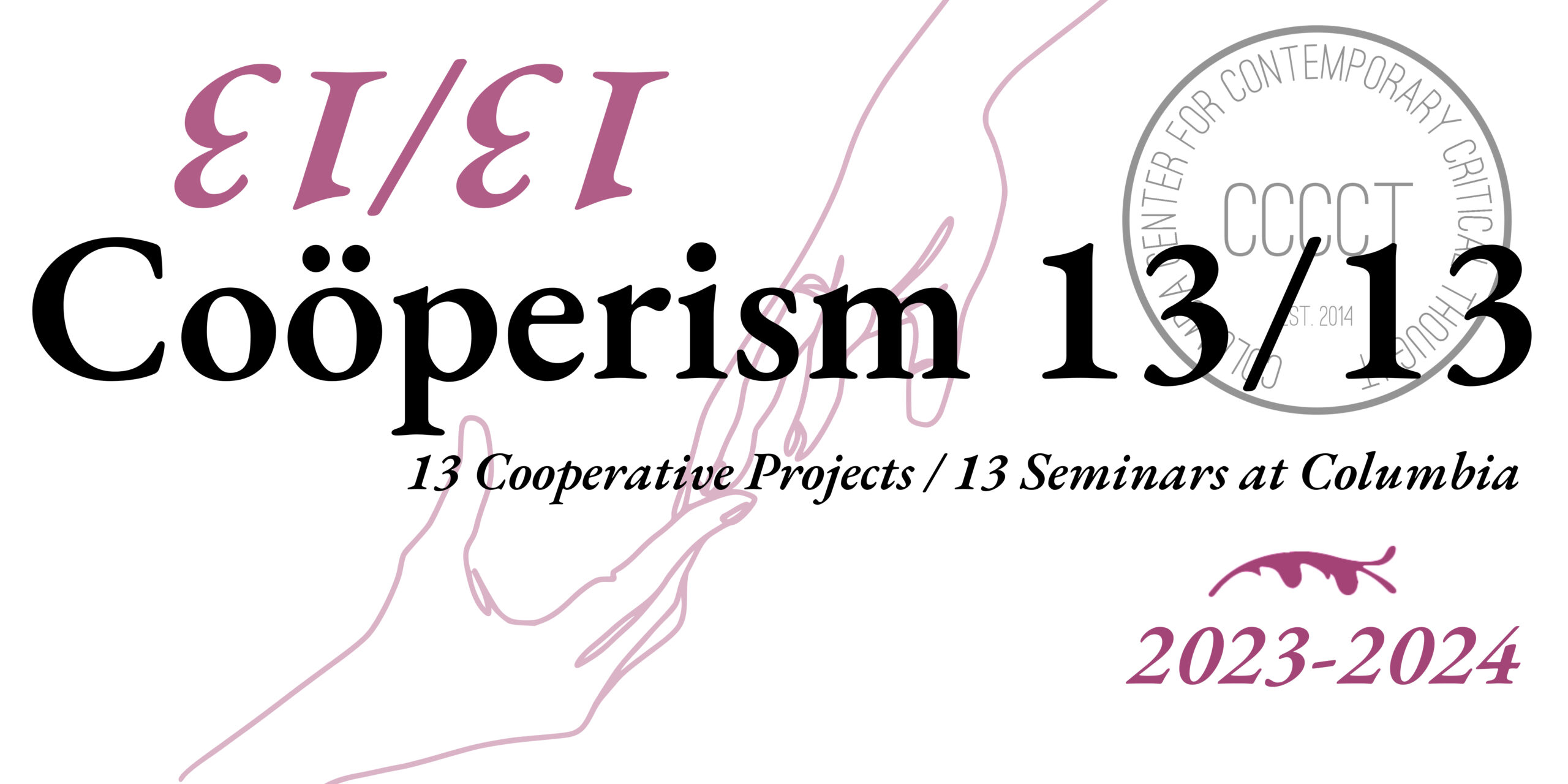By Bernard E. Harcourt
In Chapter 13 of Capital, Volume I, Marx sketches a theory of cooperation that resonates well with what I called “coöpower” in my book Cooperation.
Marx defines the term “co-operation,” drawing on the work of the French Enlightenment thinker Destutt de Tracy’s[1]conception of “concours des forces”[2] (competition), as the power that arises from the collective force of people working together. He refers to co-operation as a form of labor that reflects “the new power that arises from the fusion of many forces into a single force.”[3]
Co-operation for Marx therefore captures the idea that people working together can produce more than the sum of their parts. He specifically writes that, “Just as the offensive power of a squadron of cavalry, or the defensive power of an infantry regiment, is essentially different from the sum of the offensive or defensive powers of the individual soldiers taken separately, so the sum total of the mechanical forces exerted by isolated workers differs from the social force that is developed when many hands co-operate in the same undivided operation, such as raising a heavy weight, turning a winch or getting an obstacle out of the way.”[4]
This new form of power, Marx asserts, is “a new productive power, which is intrinsically a collective one.”[5]
This idea of a collective power is related to what I was trying to get at through the notion of coöpower in the context of cooperatives and of cooperation. Marx was writing in broader terms about the power of cooperation in any situation; and he traced it to what he called “a rivalry and a stimulation of the ‘animal spirits.’”[6] It is in that sense that he traced the concept back to Destutt de Tracy, who was referring to the competition of human forces. For Marx, co-operation includes “capitalist co-operation” (actually, the “starting point” of capitalism for Marx, “which coincides with the birth of capital itself”) as well as pre-capitalist forms of co-operation among hunting people or what he calls “the peasant” or “the artisan.”[7]
By contrast—and by indexing worker cooperatives through the use of the prefix “coöp”—my use of the term “coöpower” is trying to capture the more specific new form of power that arises in the context of cooperative forms of (what Marx would call) co-operation.
His is a general term; mine is specific to cooperative ventures. But overall, there is a clear family resemblance, in Wittgenstein’s sense.
Notes
[1] Antoine-Claude Destutt, comte de Tracy (1754-1836) was an Enlightenment philosopher and author who notably, for purposes of Marx, was the first person to coin the term “ideology” to mean the study of ideas and created the movement of “ideologues.”
[2] In his commentaries on Montesquieu, Destutt de Tracy writes: “[Le commerce] n’est pas seulement le fondement et la base de la société, il en est pour ainsi dire l’essence, il est la société elle-même ; car la société n’est autre chose qu’un échange continuel de secours mutuels, et cet échange produit le concours des forces de tous pour la plus grande satisfaction des besoins de chacun.” Antoine Destutt de Tracy, Commentaire sur « L’Esprit des lois » de Montesquieu, reprint of the edition of 1819 (Caen, France: Centre de Philosophie politique et juridique de l’Université de Caen, 1992), p. 343-344.
[3] Marx, Capital, Volume I, trad. Ben Fowkes (New York: Vintage, 1977), p. 443.
[4] Marx, Capital, Vol. I, p. 443.
[5] Marx, Capital, Vol. I, p. 443.
[6] Marx, Capital, Vol. I, p. 443.
[7] Marx, Capital, Vol. I, p. 452-53.
